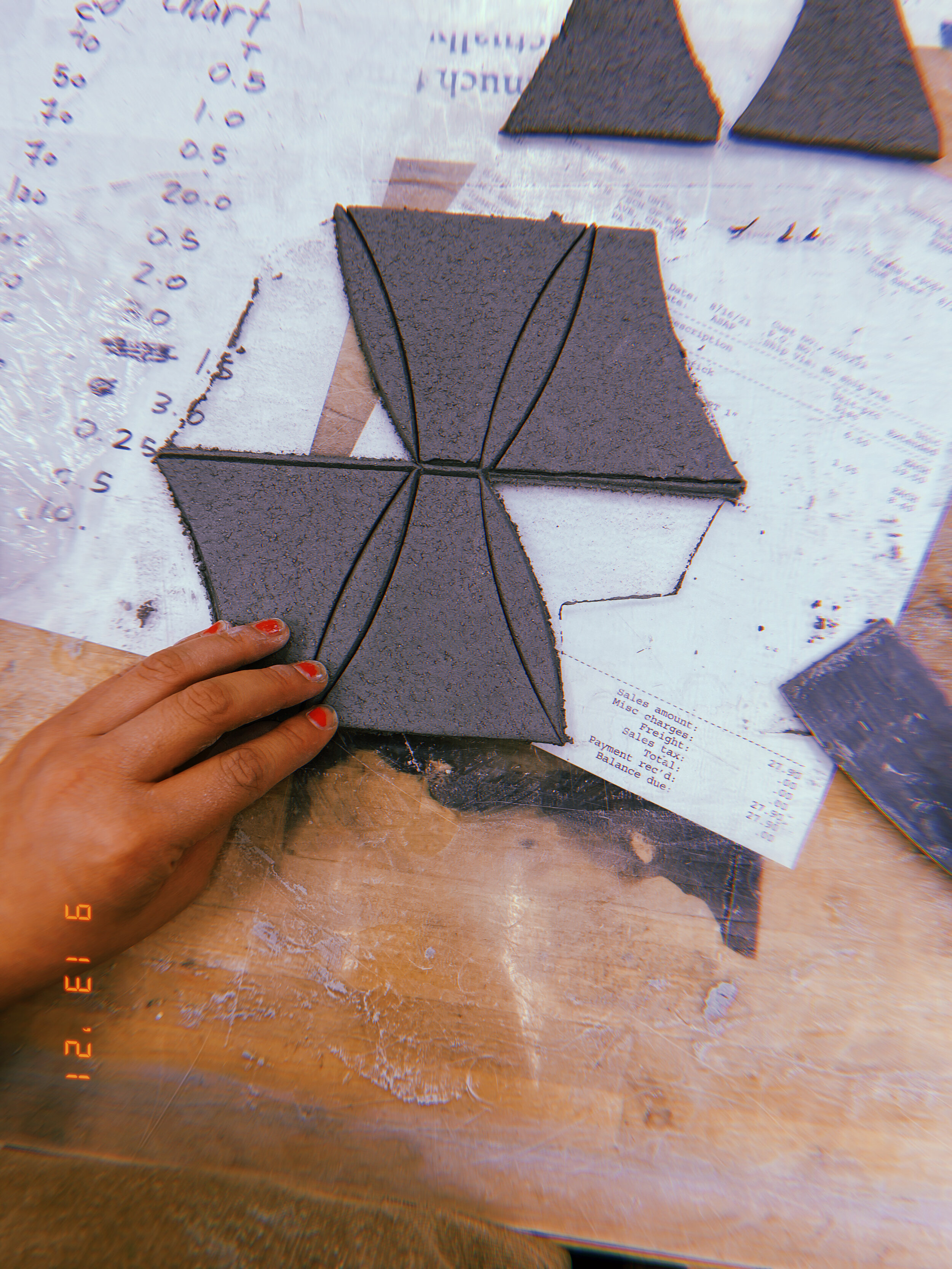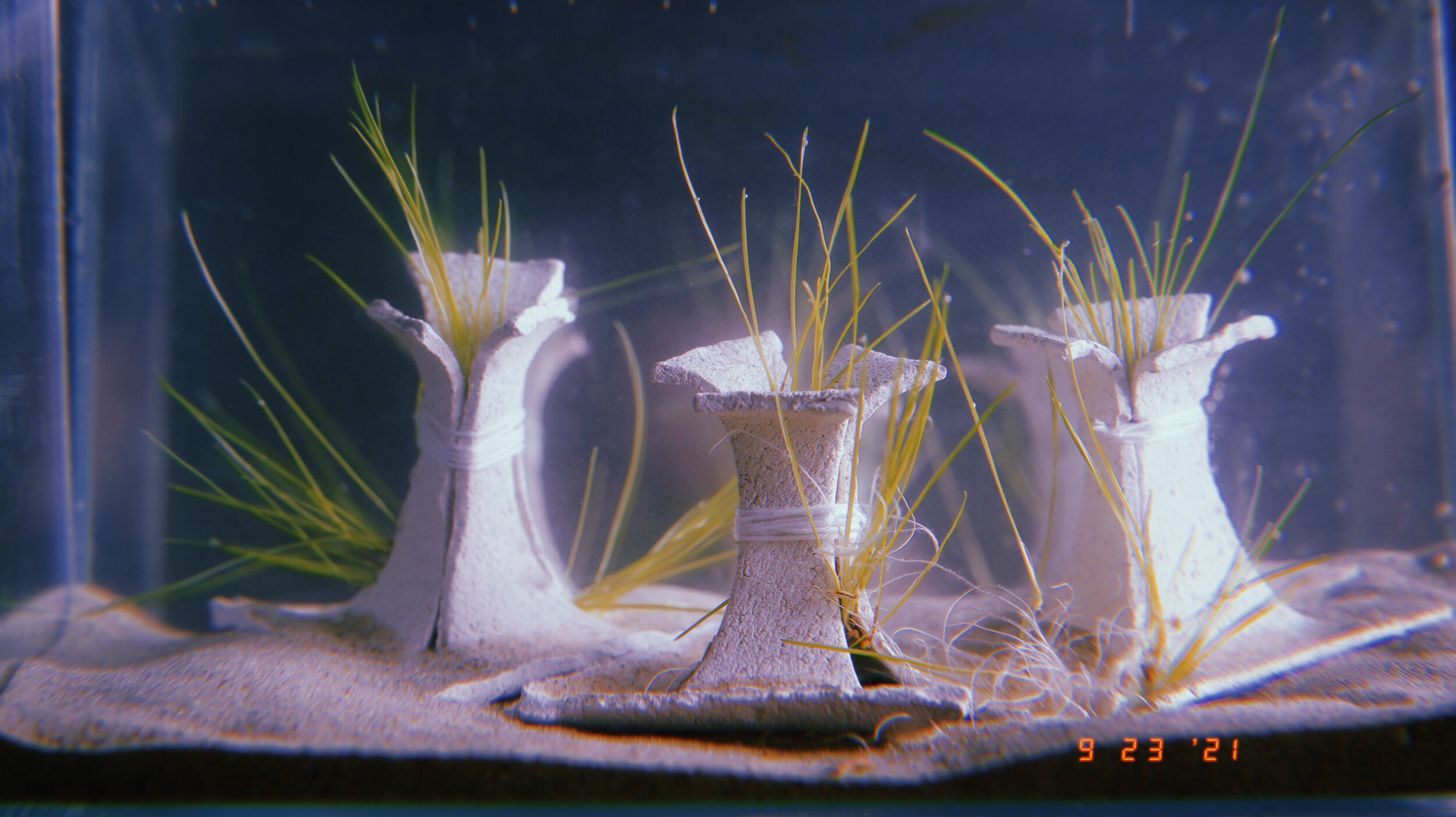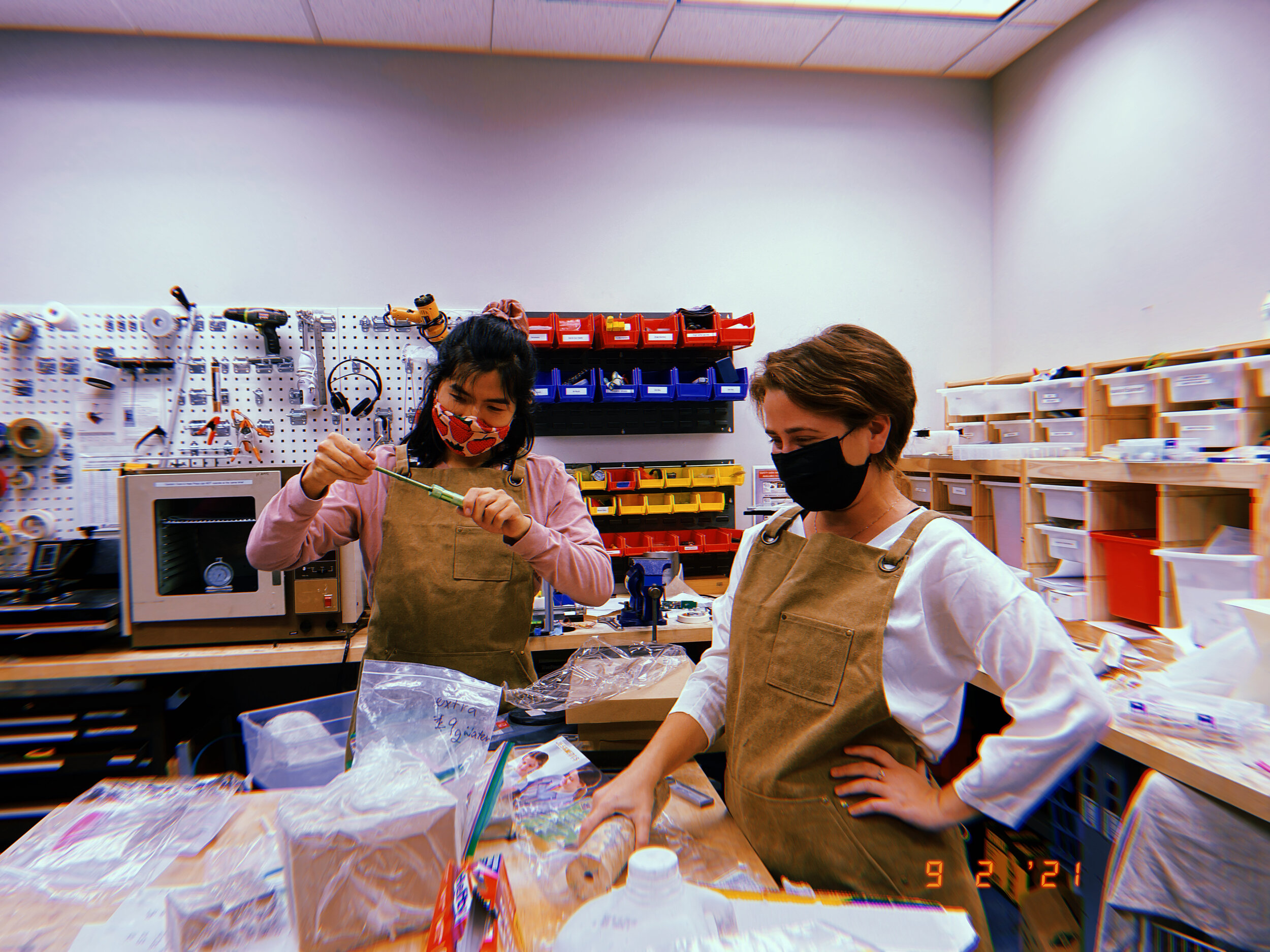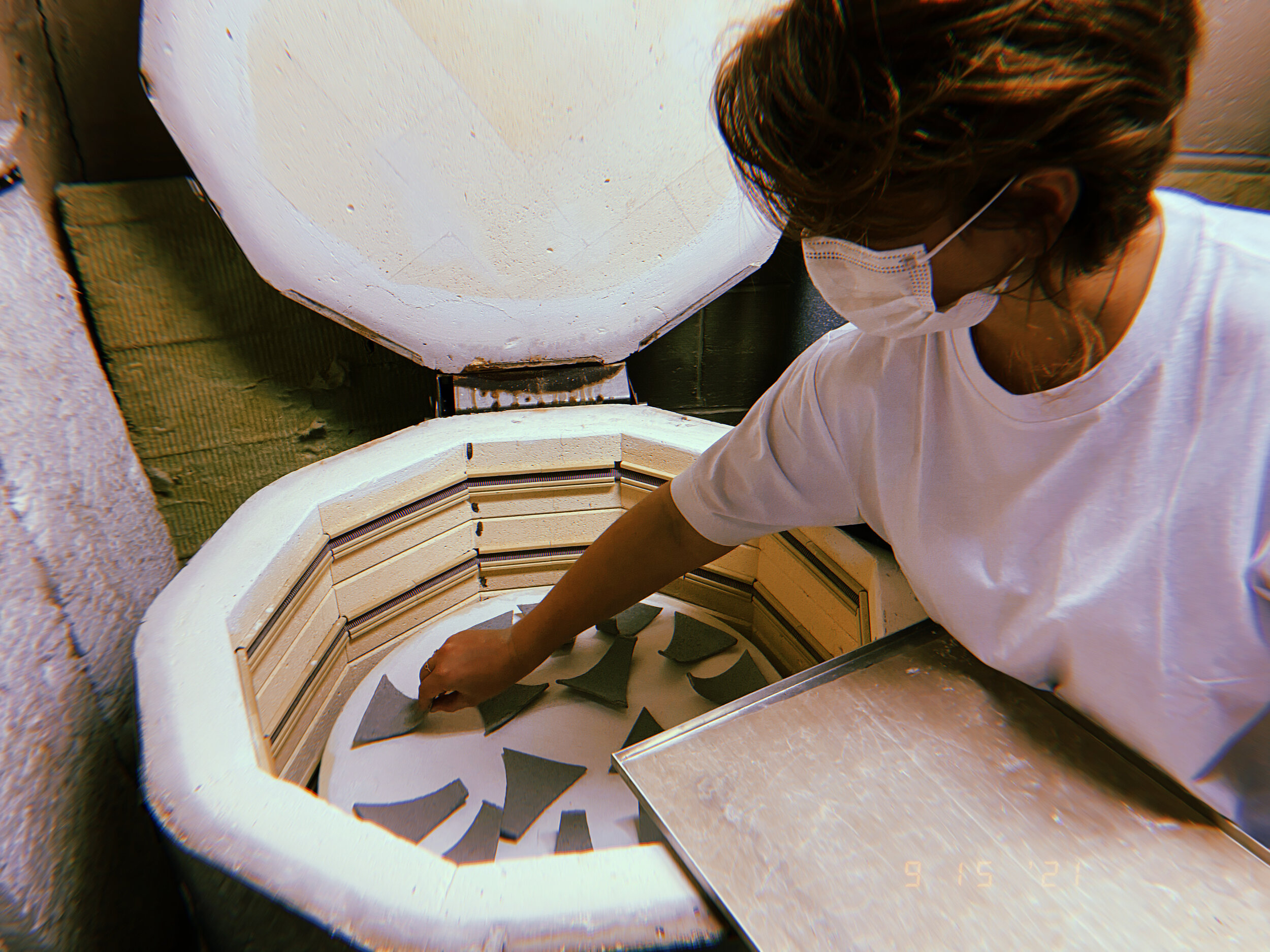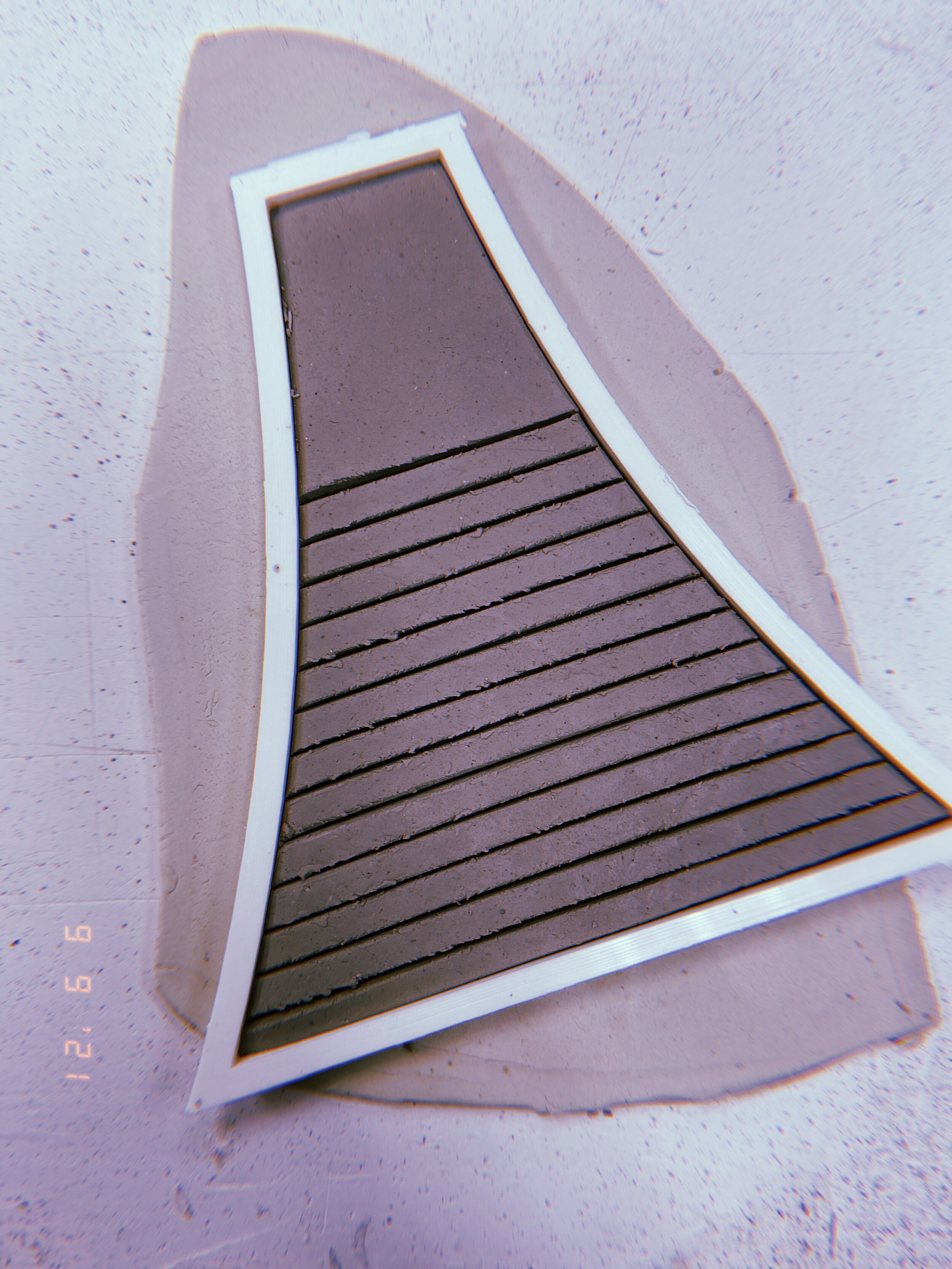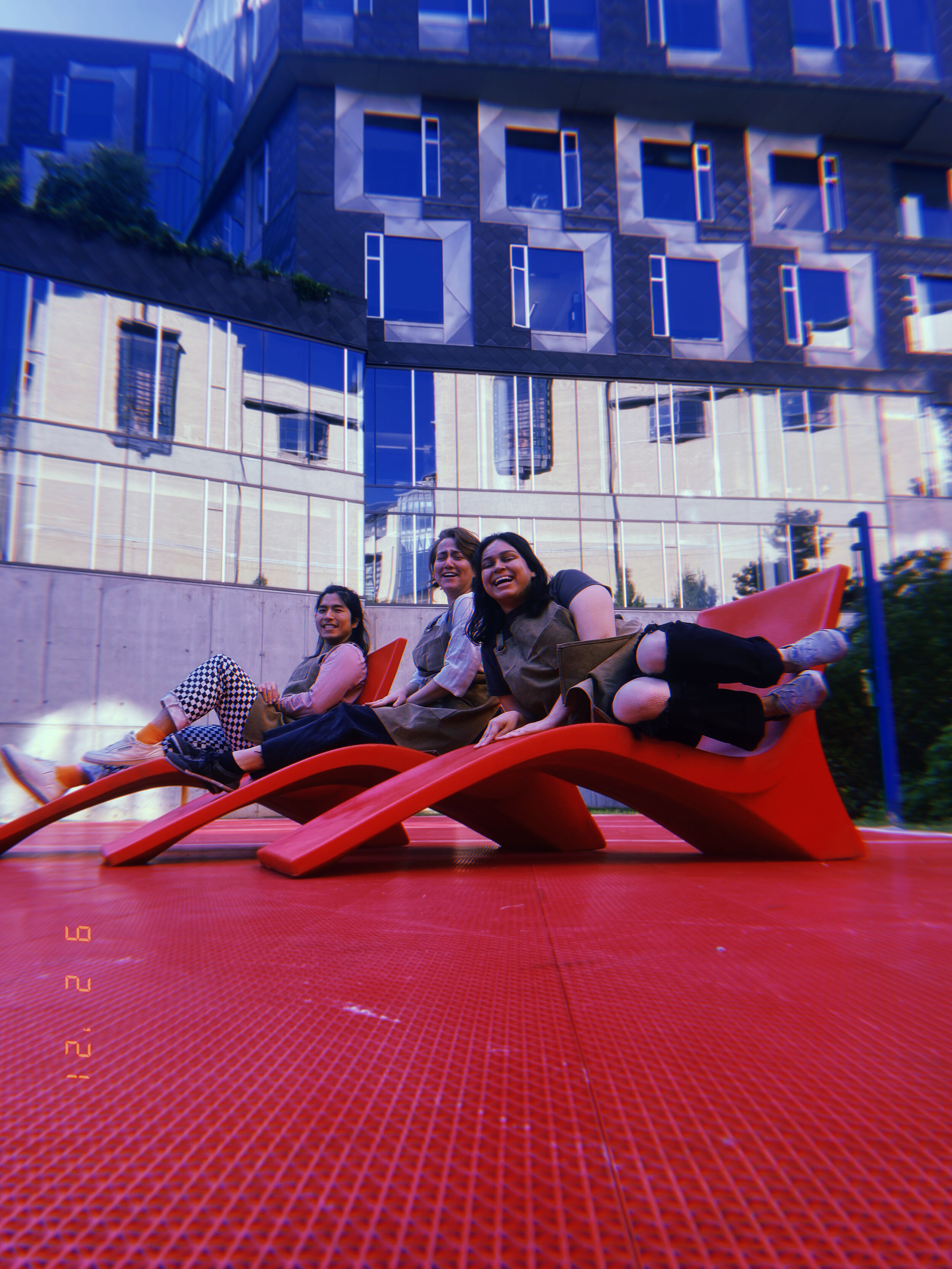“The Born and The Made”
Morphing Matter Lab Cloud Salon

Danli Luo
Danli Luo
Danli Luo is a PhD candidate in Human-Centered Design & Engineering at the University of Washington, with an M.S. in Materials Science and Engineering from Carnegie Mellon University. Her research reimagines scientific instrumentation by embedding programmability, autonomy, and physical intelligence directly into materials, biological processes, and experimental workflows. Drawing from human-computer interaction, robotics, and bio-inspired design, she develops materially intelligent instruments, self-evolving fabrication platforms, and autonomous laboratory systems used by restoration ecologists, materials scientists, synthetic biologists, and educators.
Talk Title: Building Living Instruments for Scientific Inquiry
Scientific discovery depends on physical instruments, yet most remain rigid, infrastructure-heavy, and confined to specialized laboratories, excluding many practitioners and slowing innovation. In contrast, software is programmable, scalable, and continually updated. This gap raises a central question: what if physical scientific instruments could evolve to match the flexibility of software? My research addresses this by developing Living Instruments—programmable physical systems that introduce software-like adaptability into materials, biological processes, and experimental workflows. I pursue this vision through three core capabilities: material responsiveness that encodes autonomous sensing and actuation without electronics; fabrication engines that parameterize biological growth as a controllable process; and evolving automation that transforms experiments into self-driving workflows. In this talk, I will present systems ranging from self-burying seed carriers to fungi-based bio-fabrication platforms to modular bioreactors that evolve protocols in real time, illustrating how Living Instruments chart a path toward flexible, adaptive scientific tools that democratize experimentation and accelerate discovery.
Location: Etcheverry Hall 3108, 2521 Hearst Ave, Berkeley, CA

Hajun Lee
Hajun Lee
Hajun Lee is a postdoctoral researcher in the Department of Mechanical Engineering at UC Berkeley, working with Prof. Lining Yao. He received his Ph.D. in Materials Science and Engineering and B.S. in Chemical Engineering from Ulsan National Institute of Science and Technology (UNIST). His research explores how mechanical intelligence can emerge from the interplay between materials, structures, and manufacturing, creating systems that can sense, adapt, and respond to their environment without relying solely on electronics. By integrating smart materials with mechanical metamaterials, his work aims to design soft and sustainable systems capable of multi-functionality, resilience, and autonomy.
Talk Title: The Emergence of Intelligence from Matter
What if intelligence didn’t only belong to living creatures or computers, but also to matter itself? This talk explores the emerging concept of mechanical intelligence, where materials and structures are designed to sense, respond, and adapt without the need for complex electronics or software. Starting from nature’s elegant solutions, we’ll look at how engineers and designers are reimagining the boundaries between mechanics and intelligence.
Through engaging examples, we’ll dive into smart materials that especially respond to magnetic, thermal, or optical stimuli, enabling remote-controlled motion and transformation. We’ll also explore mechanical metamaterials, whose internal architectures grant them unusual and programmable mechanical behaviors, like negative Poisson's ratio, signal propagation, or tuneable stiffness.
By blending these ideas, we can envision a future where machines are materially intelligent, such as sustainable, resilient, and beautifully simple. This talk invites you to see how intelligence can emerge from matter itself, and how such systems may reshape the way we think about robotics, design, and the material world around us.
Location: Etcheverry Hall 3108, 2521 Hearst Ave, Berkeley, CA
Live stream online: link

Tiffany Cheng
Tiffany Cheng
Tiffany Cheng is Assistant Professor at Cornell University and directs the MULTIMESO Lab at Cornell’s Department of Design Tech. Her research examines biobased materials and bioinspired structures for smarter and more sustainable forms of making, and her work has been exhibited internationally at the Eiffel Tower, Mori Art Museum, and London Design Biennale. Previously, Tiffany was Research Group Leader at the Institute for Computational Design and Construction (ICD) at the University of Stuttgart, where she led the Material Programming research group and earned her Doctorate in Engineering. Tiffany holds a Master in Design Studies (Technology) from Harvard University and a Bachelor of Architecture from the University of Southern California.
Talk Title: Cellulosic Self-Shaping: From Body to Building
What if our buildings and products could be manufactured and operated the way biological systems grow and adapt? As an alternative to conventional construction and manufacturing, I will present a bioinspired approach to making through material programming and 4D-printing. By integrating material, structure, and function, plants change shape over varying spatial-temporal scales in response to external stimuli. I will introduce how computational fabrication enable the bioinspired interplay of cellulosic materials, mesostructures, and adaptive motions to create hygromorphic systems powered by the environment. The developed methods are transferable across scales and applications – from hobbyist 3D-printers to industrial robot platforms and self-adjusting wearables for the body to weather-responsive shading in buildings. Through integrative technologies and interdisciplinary solutions, we can leverage biobased materials and bioinspired design principles to create a built environment that is transformative and resilient.
Location: Etcheverry Hall 3110, 2521 Hearst Ave, Berkeley, CA
Live stream online: link

Mason Zadan
Mason Zadan
Mason Zadan is a postdoctoral associate at the Koch Institute for Integrative Cancer Research at MIT, working with Dr. Ana Jaklenec and Professor Bob Langer on novel drug delivery methods. He completed his PhD in Mechanical Engineering at Carnegie Mellon University with Professor Carmel Majidi, focusing on soft robotics and liquid metal-based materials for wearable energy harvesting applications. Dr. Zadan has interned at Meta Reality Labs and the Air Force Research Lab and previously graduated magna cum laude with a B.S. in Physics from the University of Richmond.
Talk Title: Liquid Metals and Soft Active Matter for Stretchable Thermoelectrics and Soft Robotics
As continuous wearable physiological monitoring systems become more ubiquitous in healthcare, there is an increasing need for power sources that can sustainably power wireless sensors and electronics for long durations. To accomplish this, wearable energy harvesting devices must be conformable and stretchable to operate on the human body without impeding comfort or movement.
In this talk, I will introduce stretchable thermoelectric devices (TEDs) as a solution for both wearable health monitoring and soft robotic actuation applications. I will present liquid metal material architectures that replace traditionally rigid components in TEDs such as copper and ceramics. A novel approach to soft robotic actuation using liquid crystal elastomer shape memory polymers combined with 3D printed TEDs will be discussed, along with recent work on wireless beamforming of liquid metal patch antennas for non-line-of-sight soft robotic actuation.
Design improvements for increasing TED power density to enable PPG monitoring systems will be explored, demonstrating the first pulse oximetry sensor powered entirely by body heat. Work will also be presented on introducing 2D Ti3C2Tx MXene sheets to functionalize LM nano-droplet surface oxide layers creating "sticky" interfaces that dramatically improve thermal conductivity for electronics cooling applications.
Location: Etcheverry Hall 3110, 2521 Hearst Ave, Berkeley, CA
Live stream online: no online option

Zeyu Yan
Zeyu Yan
Zeyu Yan is a Ph.D. candidate in Computer Science at the University of Maryland (UMD). He conducts interdisciplinary human-computer interaction (HCI) research, spans digital fabrication, tangible user interfaces, accessibility, and haptic interaction, with a recent focus on designing innovative digital fabrication techniques that promote sustainable practices in printed circuit board (PCB) prototyping. His work has been published and recognized at top-tier HCI conferences, contributing to advancements in accessible and eco-conscious technology design.
https://www.zeyuyan.com/
Talk Title: Towards localized sustainable PCBA making
Every year, the world generates millions of tons of electronic waste—but only about 22% is properly recycled. Most of it ends up in landfills or is shipped overseas to energy-intensive recycling facilities that recover only a fraction of the materials, leaving harmful residuals to pollute the environment. And as demand for custom electronics continues to rise, this problem is only accelerating. My research explores a different approach: instead of sending e-waste far away, what if we could close the loop locally? With the growing accessibility of desktop fabrication tools, maker communities are uniquely positioned to play a critical role in sustainable electronics. By rethinking how we design, build, and rebuild printed circuit boards (PCBAs), we can enable local repair, reuse, and recycling—right where waste is generated. In this talk, I’ll share insights from in-depth conversations with stakeholders in the maker community and introduce three prototype methods that enable the reuse, repair, and recycling of PCBA components and materials. I’ll also discuss what it would take—technologically and infrastructurally—to realize a truly closed-loop, local electronics ecosystem.
Location: Etcheverry Hall 5148, 2521 Hearst Ave, Berkeley, CA
Live stream online: no online option

Mako Miyatake
Mako Miyatake
Mako Miyatake is a Ph.D. student in the Department of Mechanical Engineering at UC Berkeley, advised by Prof. Lining Yao. Her research interests are in the interdisciplinary field of food and engineering. She received a Bachelor's and Master's degree in Electrical Engineering from the University of Tokyo. She also learned professional cooking skills at Tsuji Culinary Institute and obtained a chef's license in Japan.
Talk Title: Edible Matter
Food is a universal medium of interaction, engaging people across cultures, ages, and contexts—from infants to the elderly, from casual outdoor meals to fine dining experiences. By bringing digital fabrication into food processing, can we tune food properties and customize experiences for different people and contexts? In this talk, I will present my research projects along with related works to explore how computational design and fabrication can reshape our everyday relationship with food.
Location: Etcheverry Hall 3108, 2521 Hearst Ave, Berkeley, CA
Live stream online: email us for a private link to access the talk

Haitao Qing
Haitao Qing
Haitao Qing is currently a Ph.D. candidate in the Department of Mechanical and Aerospace Engineering at North Carolina State University. He is expected to defend his Ph.D. dissertation in October 2025. Haitao received his M.S. and B.S. degrees in Mechanical Engineering from Hanyang University in 2021 and 2019, respectively. His research focuses on mechanics-guided design of soft robotics, mechanical metamaterials, and smart functional materials.
Talk Title: Snapping mechanical intelligence in high-performance soft robotics
Snapping leverages rapid elastic instabilities to enhance the unprecedented dynamic performance of soft robots in terms of speed, efficiency, and maneuverability. The mechanical design of soft robots can simplify the required actuation for deformation and motion, as well as enable real-time feedback control-free locomotion and self-adaption. In this talk, I will first talk about a manta ray-inspired monostable soft flapping swimmer that achieves record-high swimming speeds and maneuverability in unstructured underwater environments. I will then introduce a strategy for leveraging delayed snapping in architected metashells to enable programmable, autonomous snapping and jumping after actuation is removed. The delayed time can be tuned from seconds to 2.4 days, with jumping heights ranging from over 9 to 0.5 body lengths. We demonstrate the utility of this mechanism in explosive seed dispersal systems, achieving wide-area, omnidirectional distribution and high post-dispersal survival rates.
Location: Morphing Matter Lab, Etcheverry Hall 5149, 2521 Hearst Ave, Berkeley, CA
Live stream online: link
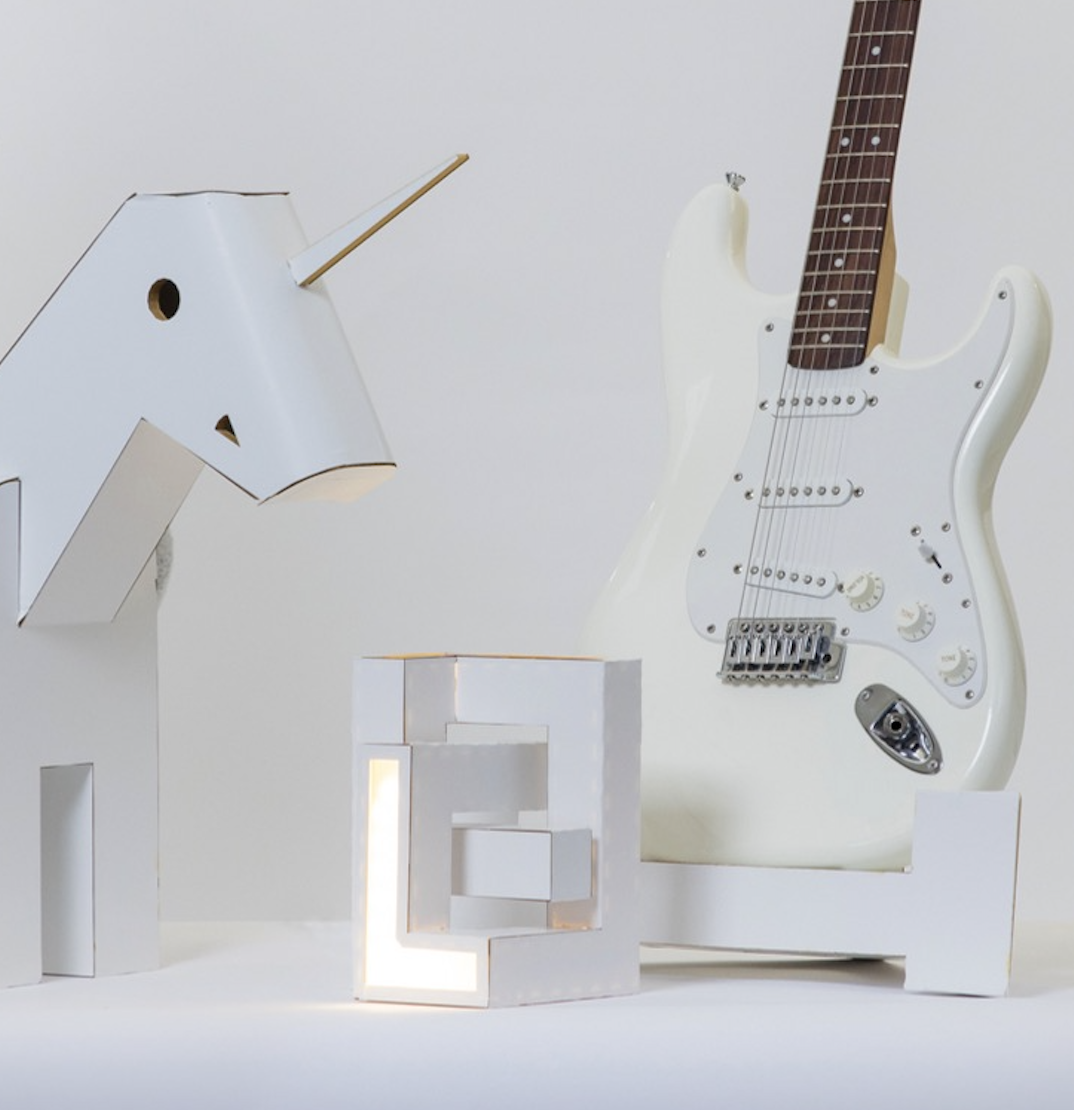
Abdullah Muhammad
Abdullah Muhammad
Abdullah Muhammad is a PhD candidate in Human Computer Interaction at Patrick Baudisch's lab at Hasso Plattner Institute in Potsdam, Germany. Abdullah received his Masters of Science from Kyung Hee University, South Korea in 2018 and a Bachelors in Electrical Engineering from National University of Science and Technology (NUST), Pakistan in 2012, as well as work experience in the telecommunications industry. During his Masters, Abdullah published on drone-based haptics interfaces. In his PhD research, Abdullah focuses on personal fabrication, and more specifically on laser cutting. His mission is to speed up the design and assembly of 3D models by an order of magnitude, to allow designers to perform the entire design-prototype/fabricate-evaluate cycle within the timeframe of a meeting. Abdullah publishes his research as full papers at ACM CHI and ACM UIST and he has served on the ACM program committees for ACM UIST and ACM DIS.
Talk Title: What is so rapid about prototyping anyway?
The term rapid prototyping was coined in the late 80s and commonly makes reference to the use of 3D printers, milling machines, and laser cutters as means to speed up the creative process in industrial design.
But is rapid prototyping really rapid? And is it even prototyping?
When taking the idea of rapid prototyping seriously, the fabrication steps find themselves embedded into a series of other creative activities, such as design sessions, brainstorming sessions, and critique sessions, all of which commonly take place on a 1min to 1h scale, often with multiple people involved. And this is where today's fabrication technology fails: Design/fabrication/assembly takes too long, the meeting is over, and everyone goes home. By the time a new date is found and everyone reconvenes, the flow has been interrupted, and the creative process comes slows down to a crawl. At this point, the actual speed of the fabrication step is of little importance and might as well take a week or whenever the next meeting takes place.
In this talk, I will challenge this traditional notion of rapid prototyping. I will try to convince you that (1) in order to make fabrication technology a serious contender for creative process, we need to eliminate the interruption, meaning: fabricate not between meetings, but within a meeting. And I will try to convince you that (2) doing so is possible, i.e., we can indeed fabricate within the time frame of a meeting.
Picking laser cutting as my weapon of choice, I will lay out the core idea of a fast fabrication process and analyze its timing to identify bottlenecks (spoiler: they are all in assembly). I will then aggregate designs, techniques, and algorithms from my most recent 4 CHI/UIST papers into a process that allows prototyping even human-scale objects (I will show a 4' piece of furniture) in an hour session--including designing, fabricating, and assembling--before anyone leaves the meeting.
I will complete my talk by zooming out to the bigger picture of "design for manufacturing and assembly" and how it could—and I would argue should—form the basis of a more encompassing notion of fabrication and rapid prototyping.
Location: Morphing Matter Lab, Etcheverry Hall 5149, 2521 Hearst Ave, Berkeley, CA
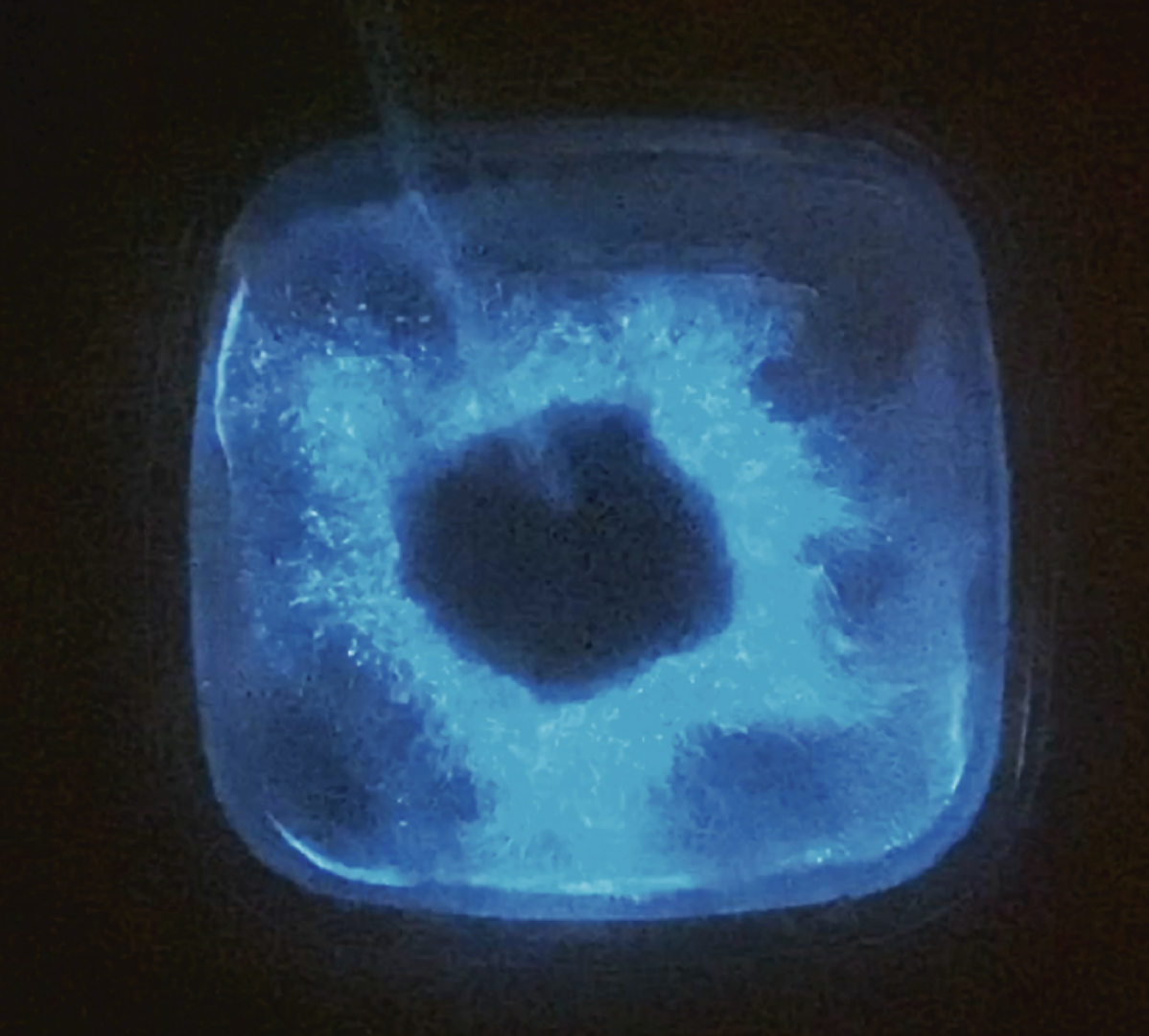
Mirela Alistar
Mirela Alistar
Mirela Alistar (assistant professor, ATLAS Institute, Computer Science) received her PhD from the Technical University of Denmark in 2014, and until 2018, she was a postdoc in Patrick Baudish's lab at Hasso Plattner Institute in Germany. Her research investigates the extent to which we can change healthcare to make it a personal process. Mirela is an active contributor to the DIYBio movement, having led and co-founded community wetlabs. In this context, she organizes interactive performances, art installations and open workshops, in order to engage the public in direct interaction with living materials (e.g., bacteria, viruses, fungi).
Talk Title: Led by Livingness: co-engineering with organisms
My research is an interplay of biology, engineering and art. At the technical level, I investigate biomaterials for tangible interaction and digital microfluidic biochips for personalized healthcare. At an artistic level, my research focuses on bridging the gap between humans and non-human nature, e.g., using microbiomes as a source for sustainability, and bioluminescence as a guidance for escaping darkness. I am also passionate about researching microfluidic biochips, devices that enable direct interaction of humans with their microbiome for diagnosis purposes. So far, I have built systems based on biochips to serve as personal laboratories: small portable devices that people can own and use to develop customized bio-protocols ("bio-apps"). This talk will give a glimpse of the future as I imagine it: computing interfaces that can biodegrade, and personal laboratories that can democratize healthcare.
Location: Morphing Matter Lab, Etcheverry Hall 5149, 2521 Hearst Ave, Berkeley, CA
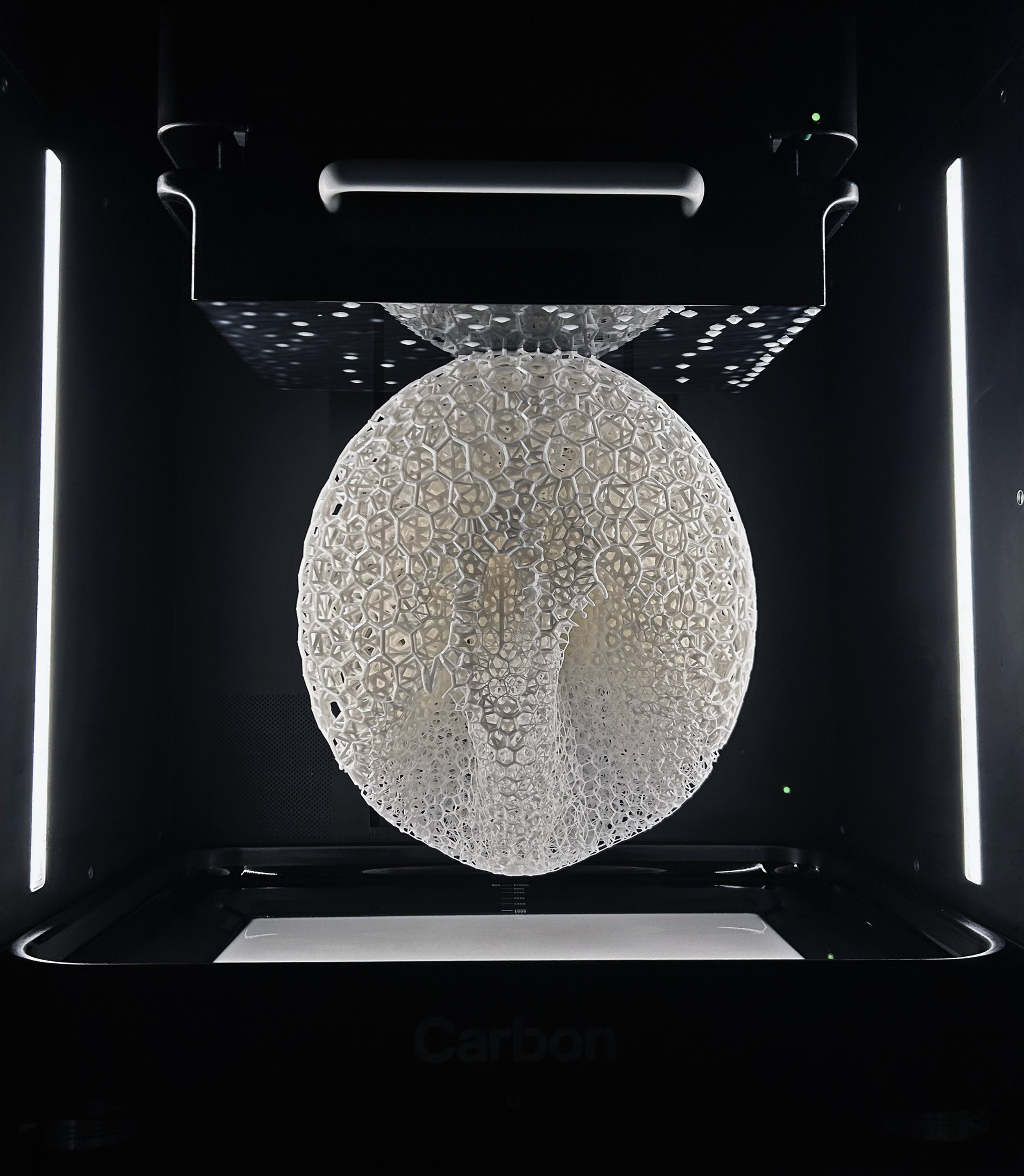
Gabriel Lipkowitz
Gabriel Lipkowitz
I am an incoming assistant professor at the National University of Singapore in the Division of Industrial Design (to begin Nov. 2024), having recently graduated from Stanford University. I'm passionate about leveraging new technologies to push the boundaries of interactive 3D design in applications ranging from spatial computing to 3D visualization to new media art.
Talk Title: Towards bio-inspired interactions: explorations in nature-inspired design of emerging interactive 3D technologies
Natural organisms and ecosystems have often provided fertile sources of inspiration for artists, architects, designers, and engineers prototyping products for the physical world. In the first part of this talk, I will provide a case study of one such project in this area, drawing on my academic background in biology to invent a novel approach to the computational 3D fabrication of physical objects. Using this project as a foil, however, I will proceed to argue that relatively less explored, but potentially just as consequential, is how a close attention to natural aesthetics can equally benefit our increasingly common interactions with purely virtual 3D environments, objects, and experiences, or those that blend virtual with physical interactions. Focusing on new experiences enabled by the emerging media of augmented reality and spatial computing in particular, I will present several past and ongoing works, from both design research and teaching, which illustrate and prototype bioinspired design systems for such emerging interactive 3D technologies.
Location: Morphing Matter Lab, Etcheverry Hall 5149, 2521 Hearst Ave, Berkeley, CA
Zoom: https://berkeley.zoom.us/j/93236529637?pwd=QSB9cHook3UuZzoyF6MW70Kq1vPY0C.1 Meeting ID: 932 3652 9637 Passcode: 440901
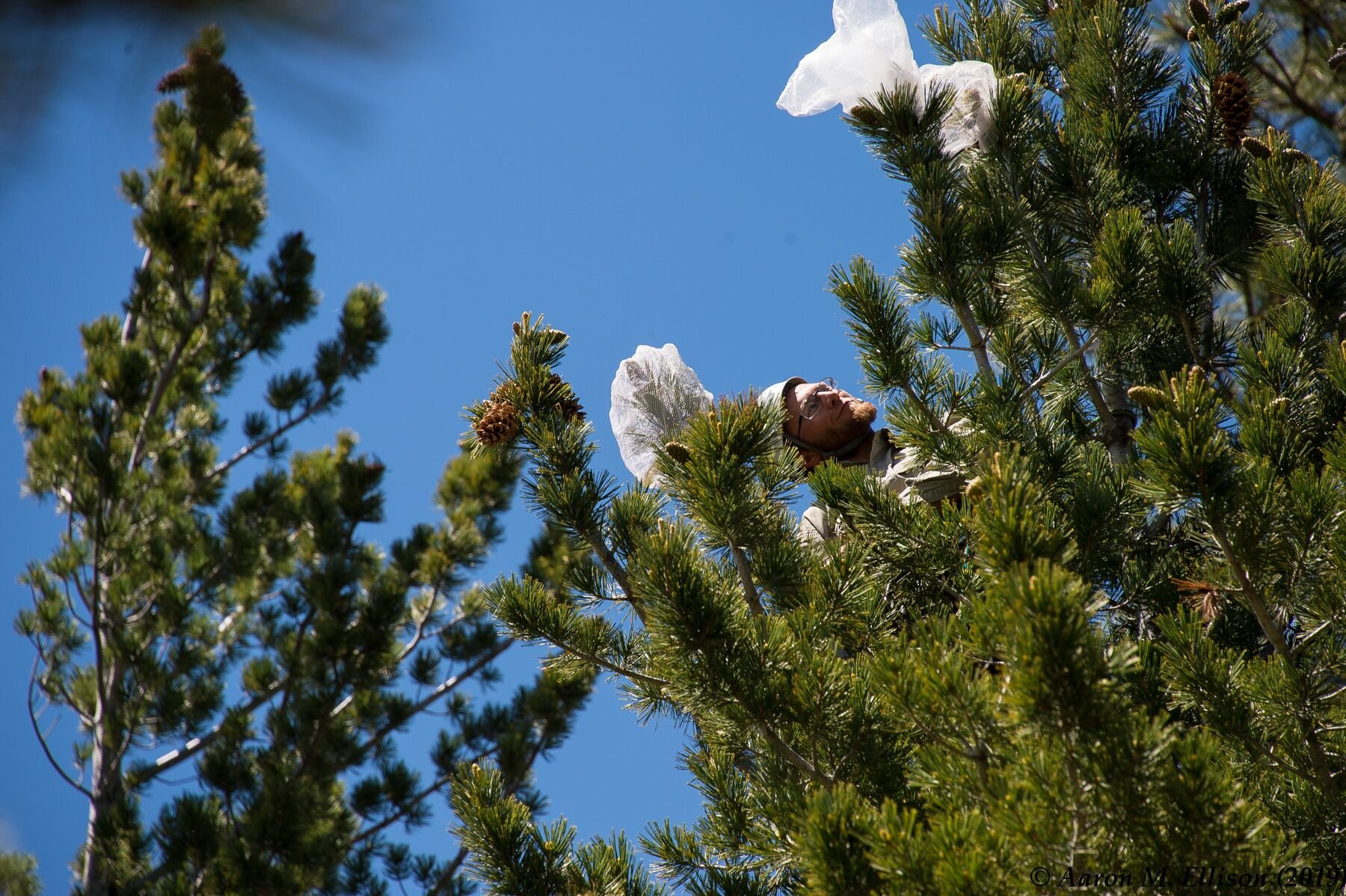
Ehren R. Moler
Ehren R. Moler
I am a terrestrial ecology researcher and educator specialized in plant ecophysiology, community ecology, genetics, and agroecology. I seek to conserve and restore plant and plant-associated biodiversity through ecological restoration in settings ranging from forests in the Rocky Mountains to desert agricultural fields in California. I am also passionate about supporting educational programming and sustainable development in developing regions of the world.
Talk Title: Science Meets Practice in Ecosystem Restoration and Biodiversity Conservation
My research interests are the result of exploring numerous science-based approaches to achieving biodiversity conservation. Professional positions in industry, academia, and the nonprofit sectors, and collaboration with researchers in Africa, Canada, Mexico, and across the USA has led me to prioritize the study of plant regeneration and plant-associated biodiversity. In this talk, I will highlight emerging ecological challenges and the role of plant regeneration research in facing those challenges.
Open to the public, special guest lecture for the course 05-499/899 Sustainable Design: Materials, Artifacts and Computational Tools
Zoom link: https://cmu.zoom.us/j/4164228265
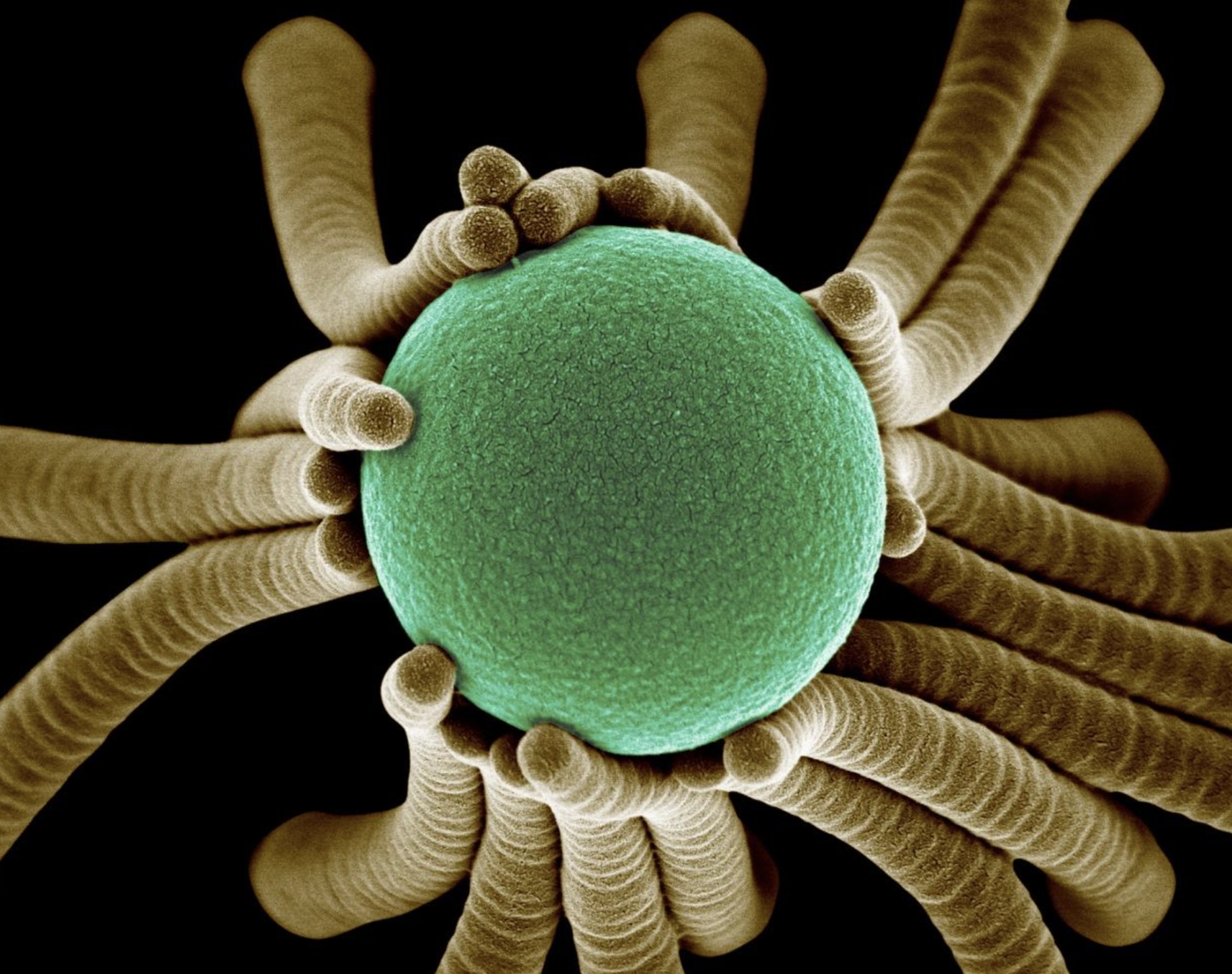
Sung Hoon Kang
Sung Hoon Kang is an Assistant Professor in the Department of Mechanical Engineering at Johns Hopkins University. He earned a Ph.D. degree in Applied Physics at Harvard University and M.S. and B.S. degrees in Materials Science and Engineering from MIT and Seoul National University, respectively. Sung Hoon has been investigating bioinspired sustainable solutions to address current challenges in engineering materials, structures and devices with applications including resiliency, sensing, energy, and healthcare.
Talk Title: Toward sustainable and resilient materials through bioinspiration and design
I will present our ongoing efforts to design and make novel materials and structures for a resilient and sustainable future through coupled material systems. First, I will present a material system that can self-adapt to mechanical loadings and mitigate damages through coupling between stress and material synthesis, inspired by bone [1]. Second, I will present architected materials (or metamaterials) with extreme and adaptive energy dissipation based on liquid crystal elastomers through coupling between nonlinear geometric effects and nonlinear material properties, guided by computational modeling [2]. We envision that our findings can contribute to opening new strategies for designing and making synthetic materials with self-adaptable mechanical properties, leading to more resilient and sustainable systems with applications including automotive, aerospace, infrastructure, and healthcare.
[1] Orrego et al., Advanced Materials, 32, 1906970 (2020). [2] Jeon et al., Advanced Materials, 2200272 (2022).
Open to the public, special guest lecture for the course 05-499/899 Sustainable Design: Materials, Artifacts and Computational Tools
Zoom link: https://cmu.zoom.us/j/4164228265
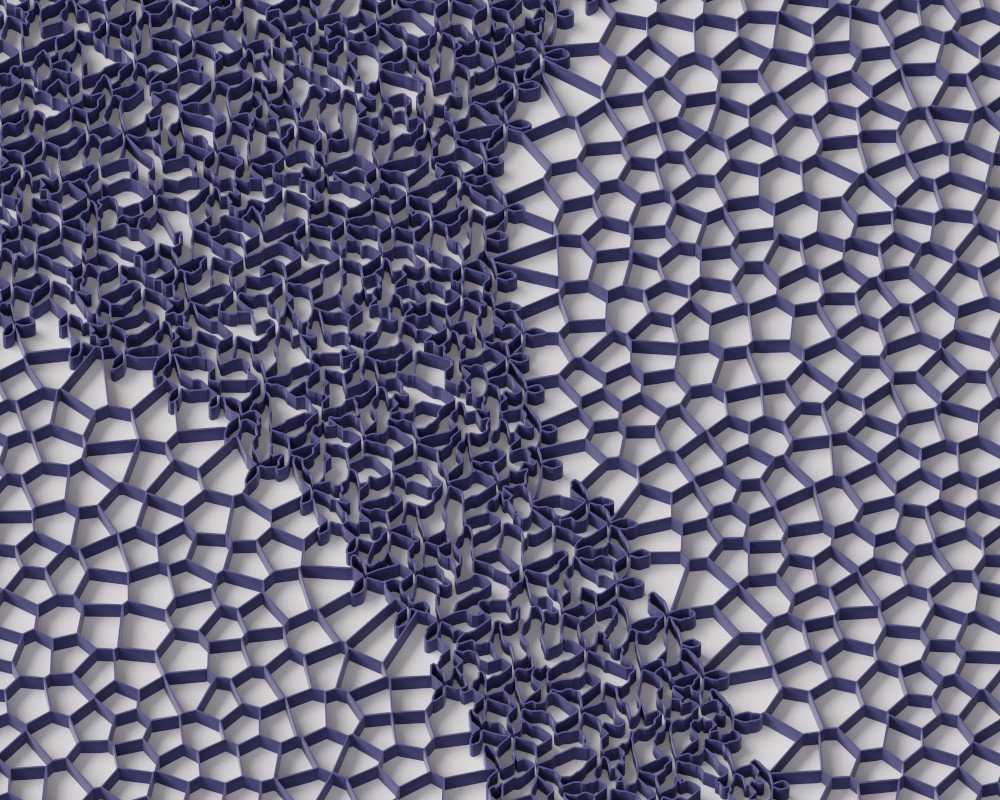
Jonàs Martínez
Jonàs Martínez is a permanent researcher at INRIA and a member of the MFX team (Matter from Graphics). He received a Ph.D. degree from Universitat Politècnica de Catalunya in 2013 and was subsequently awarded an ERCIM postdoctoral fellowship to pursue his research at INRIA. His current recent research lies at the intersection between additive manufacturing, computational geometry, and computer graphics, with an emphasis on the study of small-scale random structures.
Talk Title: Parametric growth processes for metamaterial design
A substantial amount of research in additive manufacturing is devoted to designing mechanical metamaterials that derive their physical properties from the particular arrangement of their small-scale geometry. In this talk, I will present recent works that use parametric growth processes to generate mechanical metamaterials. One of the main advantages of using parametric growth processes is that they allow the implicit grading of mechanical properties. Seamlessly grading different target material properties is essential for various domains such as Functionally Graded Materials (FGM).
Open to the public, hybrid mode
Physical location: NSH 3612 (Morphing Matter Lab)
Zoom link: https://cmu.zoom.us/j/4164228265
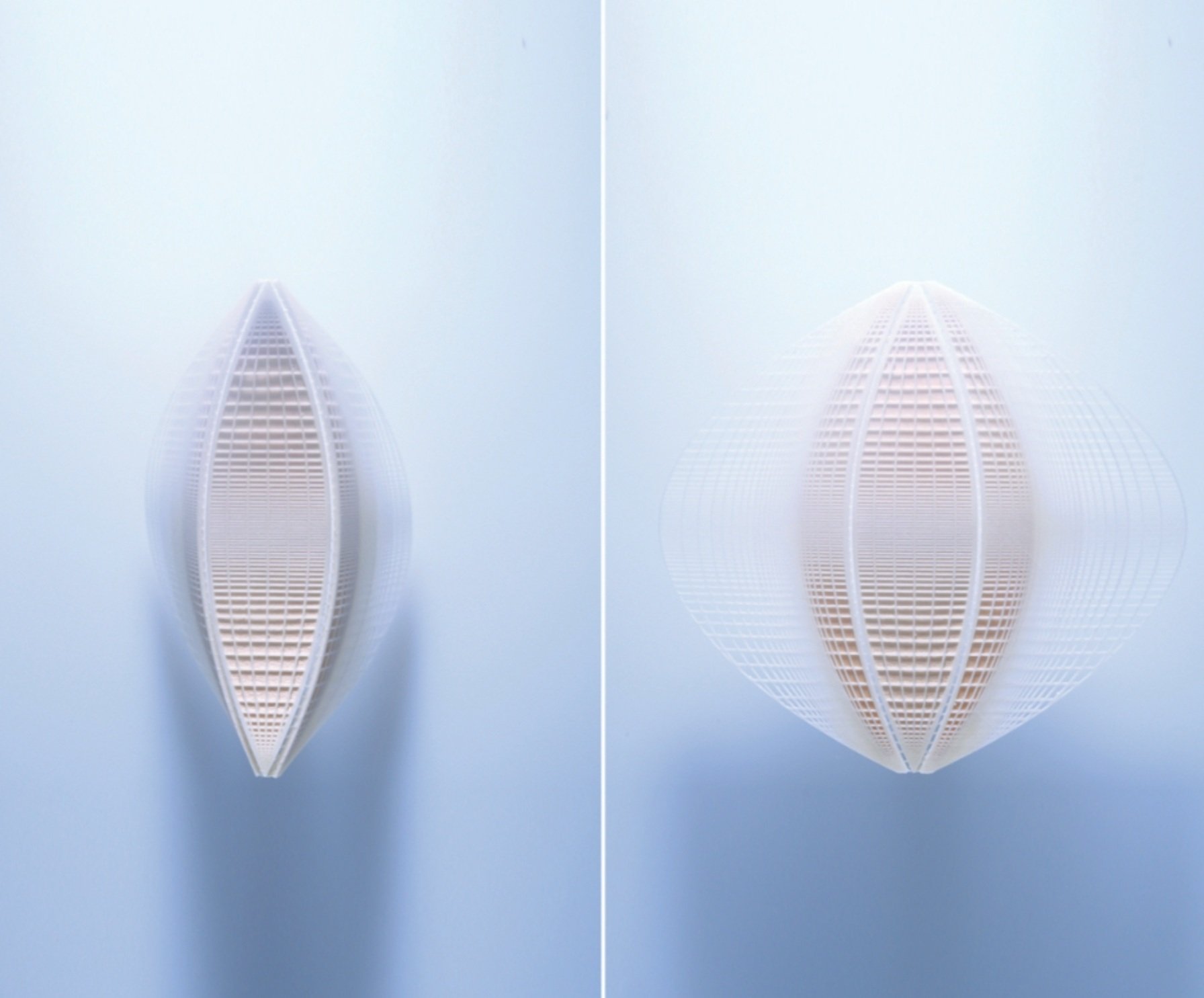
Yasaman Tahouni
This short online guest lecture, as part of the course 05-499/899 Inclusive Tangible and Material Interfaces, welcomes the public to attend.
Yasaman Tahouni is a computational designer, maker, and a PhD candidate at the Institute for Computational Design and Construction (ICD) at the Stuttgart University, Germany. Her research interest lies at the intersection of computation and materiality, and she seeks ways to bridge the two to create adaptive, performative, shape-changing structures. Her current research is focused on biobased and bioinspired 4D printing, for which she develops computational fabrication processes that merge design, additive manufacturing, and biobased “smart” material systems.
Previously, she earned her dual M.Sc. degree in Architecture (SMArchS Computation) and Electrical Engineering and Computer Science from MIT, Boston.
Talk Title: Biobased and Bioinspired Shape-Changing Structures
Nature has evolved a multitude of strategies for dead tissue to become animated, for example the pine-cones scales that open to release their seeds upon drying. Such natural structures are not only a source of inspiration for designing shape-changing structures, but also a source of materials for their fabrication across scales. In this talk, I present my research on biobased 4D printing, for which I use cellulose-based materials and FDM 3D printing to construct hygromorphic structures in meso- to macro-scale. I will showcase examples of my recent projects, from programming sequential motion steps to developing self-shaping curved folding mechanisms, and will discuss their applications in architecture, product design, and beyond.
Open to the public
Zoom link: https://cmu.zoom.us/j/98428936299?pwd=U2Q4ejlvTWxQckc3UlU2MXlnZ1BPUT09
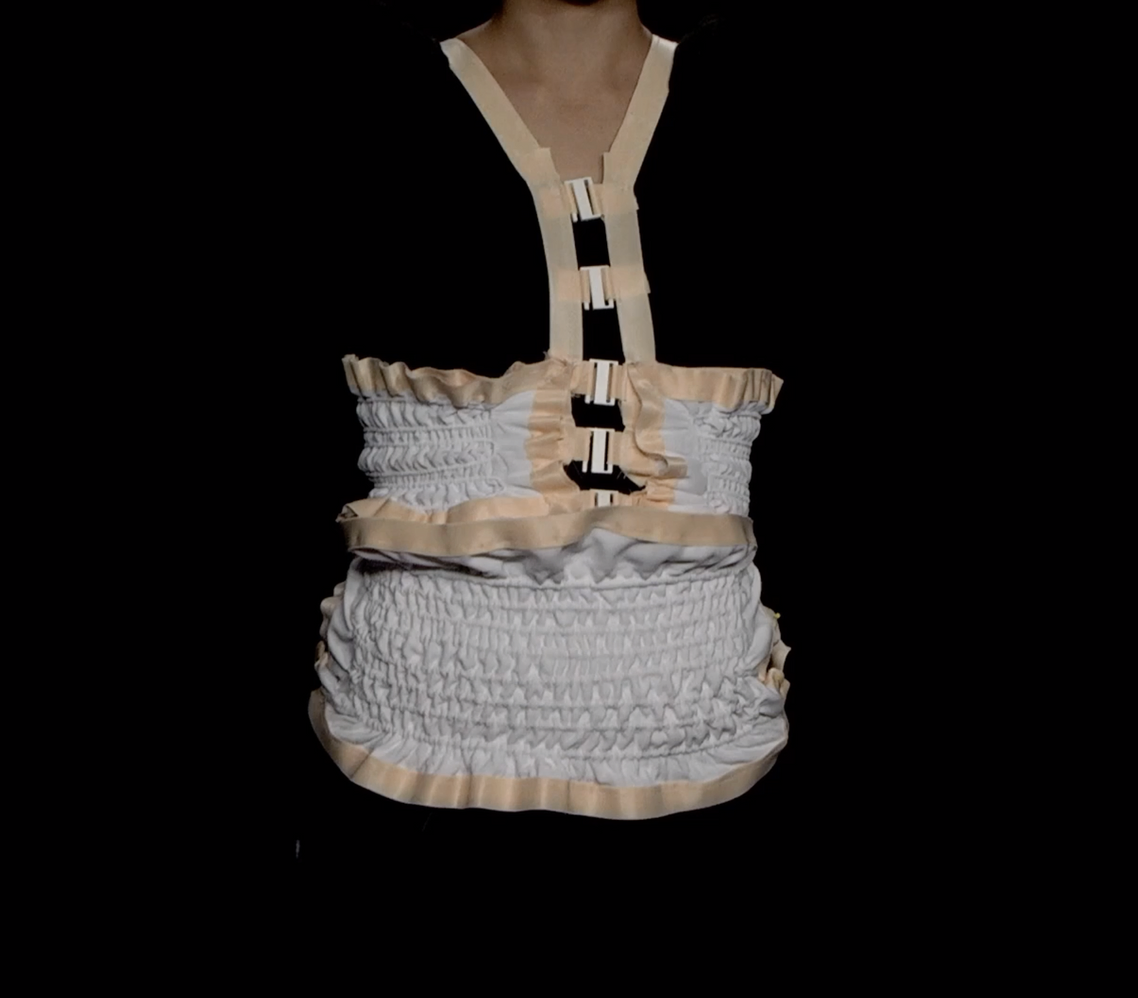
Ozgun Kilic Afsar
This short online guest lecture, as part of the course 05-499/899 Inclusive Tangible and Material Interfaces, welcomes the public to attend.
Ozgun Kilic Afsar, MIT Media Lab, Tangible Media Group, Research Affiliate & KTH Royal Institute of Technology, Ph.D. Candidate
Talk Title: Shaping and Being Shaped by Fabric Machines
Fiber, a primitive yet ubiquitous form of material – intertwines with our bodies and surroundings, from constructing our muscles that enable movement, to forming fabrics that interface with our skin. Advances in materials science and Human-Computer Interaction invite visions of a world where people interact with machines through clothing. My research program seeks to explore ‘fabrics as soft machines’ with a contextual focus on bidirectional kinetic learning, by creating an intimate relationship between the body and the fabric interface where both are prone to change, learn from, and adapt to one-another.
In this talk, I will present my work on high-pressure microfluidic fibers and fabrics as the building blocks of my kinesthetic wearables. I will also share a recent design case of my fluidic garments leveraged in an interactive Opera performance, where the audience’s experience is shaped by feeling the singer’s muscle movements through individual soft robotic corsets, as a new way of listening and experiencing voice."
Open to the public
Zoom link: https://cmu.zoom.us/j/98428936299?pwd=U2Q4ejlvTWxQckc3UlU2MXlnZ1BPUT09
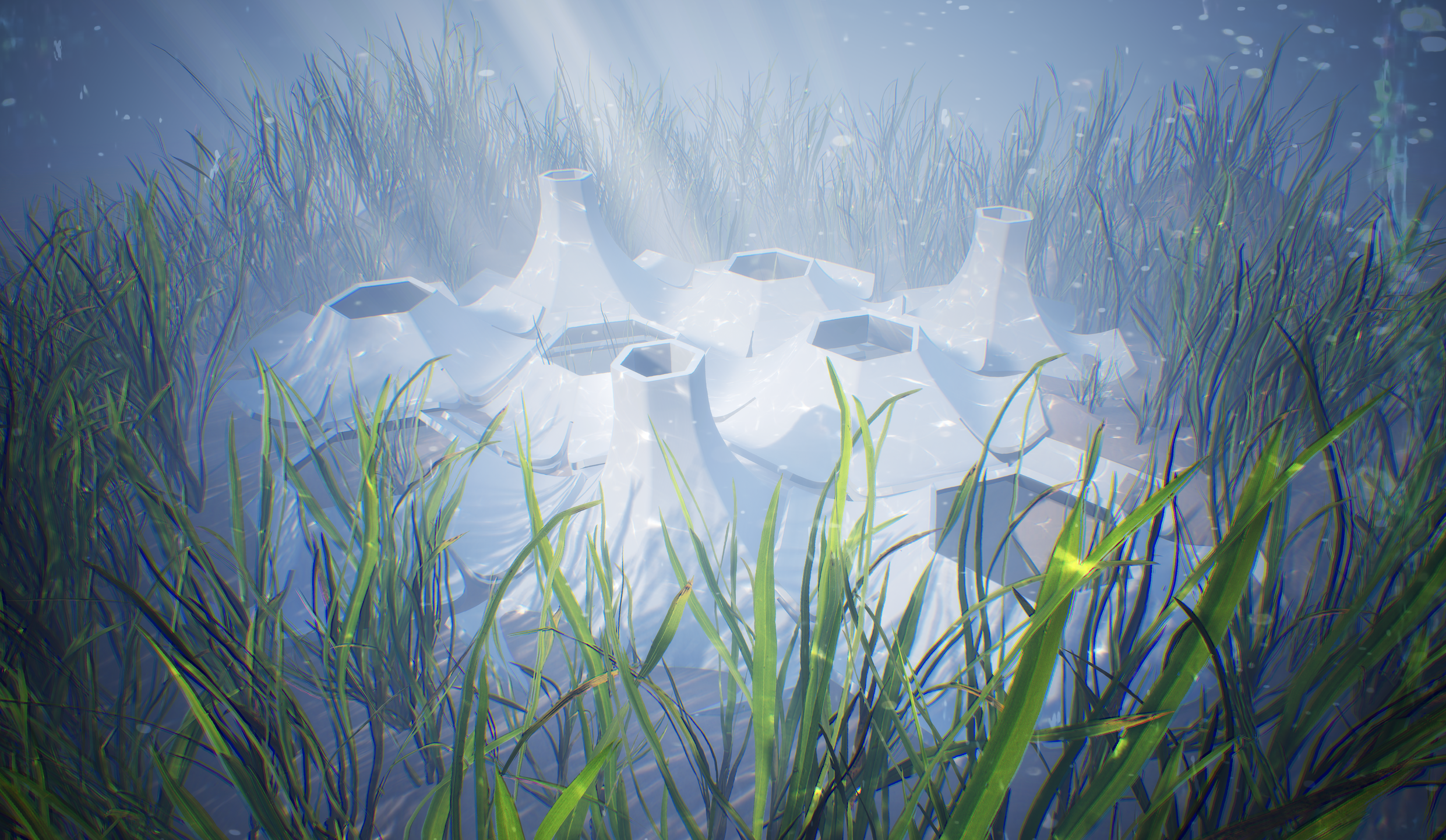
Blue Ceramics
Morphing Ceramics for Seagrass Meadow Restoration
Hybrid Open Lab Session
Tuesday, Oct 5, 2021 @ 1:00 pm
In-person @ Morphing Matter Lab, Newell Simon Hall 3612
Blue Ceramics Team
Rachel Arredondo - CMU MHCI 2021, Kylon Chiang - CMU MHCI 2021, Ofri Dar - Bezalel Academy of Art and Design, Industrial Design 2022
Nature Centered Design: Our team aims to support seagrass conservation actions by designing interventions that support restoration efforts to rehabilitate or protect seagrass meadows.
Blue Carbon: Seagrass meadows are twice as efficient as forests at capturing and storing carbon. But over the last two decades 18% of Eel grass (zostera marina) meadows, the dominant seagrass in the northern hemisphere, have disappeared.
Morphing Ceramics: As part of a holistic approach, we are in the process of designing morphing ceramic structures that can serve multiple environmental purposes as they decay naturally and harmlessly over time.
This project is partially supported by Carnegie Mellon’s Berkman Faculty Development Fund grant, and could have been impossible without the generous help of the following people:
Eran Sharon’s Lab, HUJI: Prof. Eran Sharon; Dr. Arielle Blonder
Fireborn Studios: Dan Vito; Donna Hetrick; Bennett
Morphing Matter Lab - Carnegie Mellon University: Prof. Lining Yao; Dinesh Patel & Jianzhe Gu & Kexin Lu
Bezalel Academy of Art and Design ; Noam Dover ; Prof. Haim Parnes
Marine Biologists: Dr. Abbey Engelman; Jeffery Good
Seagrass Marine Biologists: Dr. Emmett Duffy ; Dr. Jessie Jarvis, UNCW
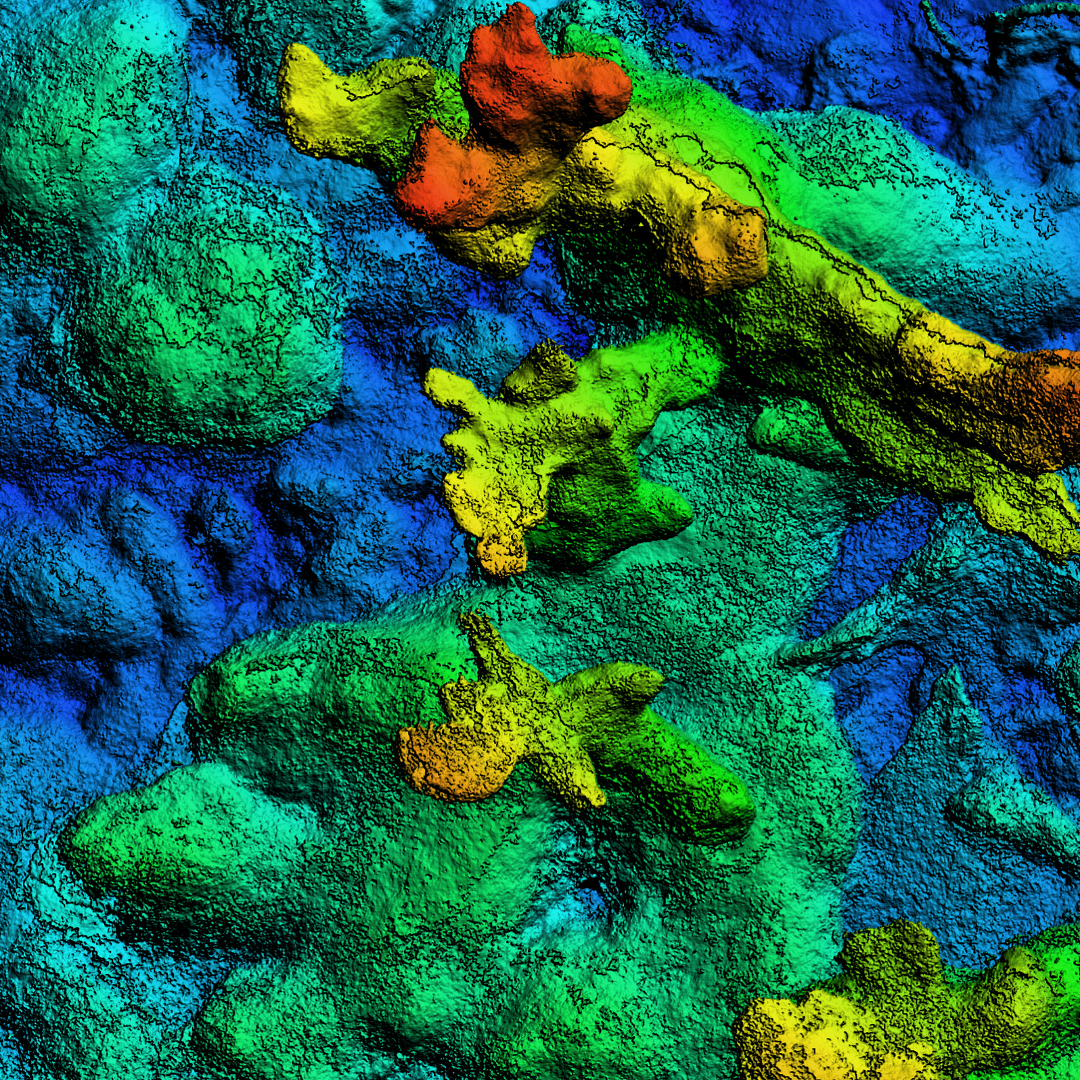
Abbey Engleman
Dr. Abbey Engleman is a marine scientist who previously conducted research on coral reef ecology and restoration. Her research used emerging 3D technologies to decouple the structural and biotic contributions of coral to coral reef ecosystems. She remains passionate about the multifaceted applications of 3D and digital technologies to help us understand our planet. She is currently serving as a Fellow at the Subcommittee on Water, Oceans, and Wildlife of U.S. House of Representatives, Committee on Natural Resources
Talk Title: 3D Sea and Biomimicry: Growing Need for Intersectional Ecologists
We as humans have a heavy dependence on goods and services marine systems provide, but our ocean's masking surface and challenging conditions distance us from the vibrant ecosystems lying beneath. Understanding these ecosystems is critical to sustaining our livelihoods, sustenance, and way of life. Emerging technologies and biomimicry present exciting opportunities to remove the ocean's veil by embracing new, 'intersectional ecology.' Better yet, these tools allow us to share the oceans beyond academia, helping us foster appreciation for the 71% of our planet hidden in plain sight.
Open to public:
Zoom link or add the Zoom link to your Google Calender
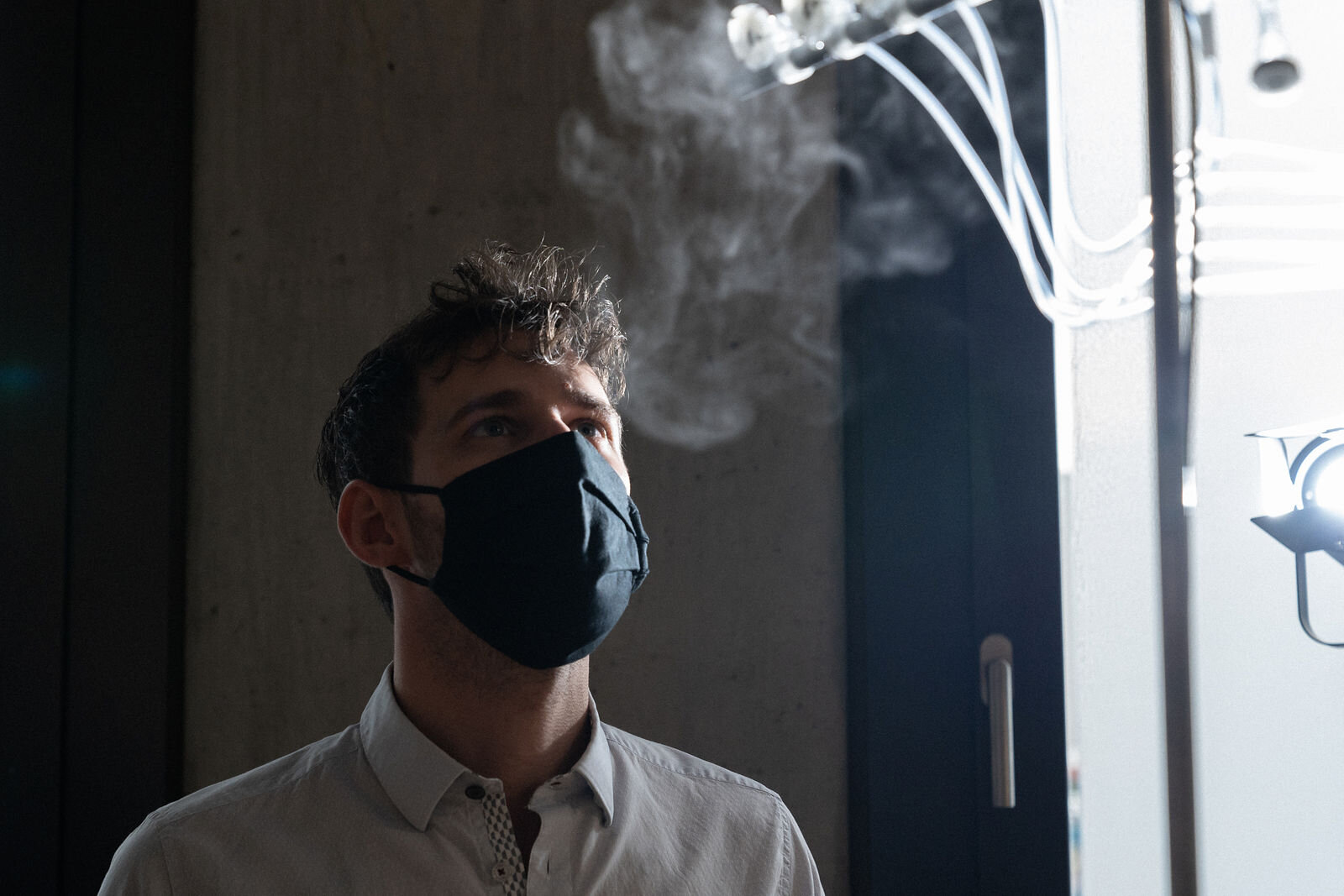
Clemens Winkler
Clemens Winkler is a design researcher and deals with experiments at the interfaces of ephemeral material processes and actual socio-technological, scientific and geopolitical topics. At the Cluster of Excellence “Matters of Activity” at Humboldt University Berlin, Clemens currently researches micro-climates, metabolic cloud formations and algorithmic weathering. He has exhibited internationally and mentored recently at “Design Products”, Royal College of Art London, “Ginkgo Bioworks Creative Residency” program and “Interaction Design” department at Zurich University of the Arts.
Clemens studied at “Interface Cultures” at Art University, Linz, Austria, “Design Interactions” at the Royal College of Art, London, UK and the MIT Media Labs, Boston.
http://clemenswinkler.com/
https://www.matters-of-activity.de/en/members/225/clemens-winkler
Keywords: material mediated art and design
Talk Title: Speculating Materials
How can we give people agency in a vague, cloudy present by reflecting on a Heterotopia through speculating materials? And how can a material-oriented approach in design emphasize the organic interplay between activation/synthesis/assembly and inhibition/degradation/disruption? Also, this talk reflects on the potential of matter as a mediator between various disciplines, spaces and timescales.
Open to public:
Zoom link or add the Zoom link to your Google Calender
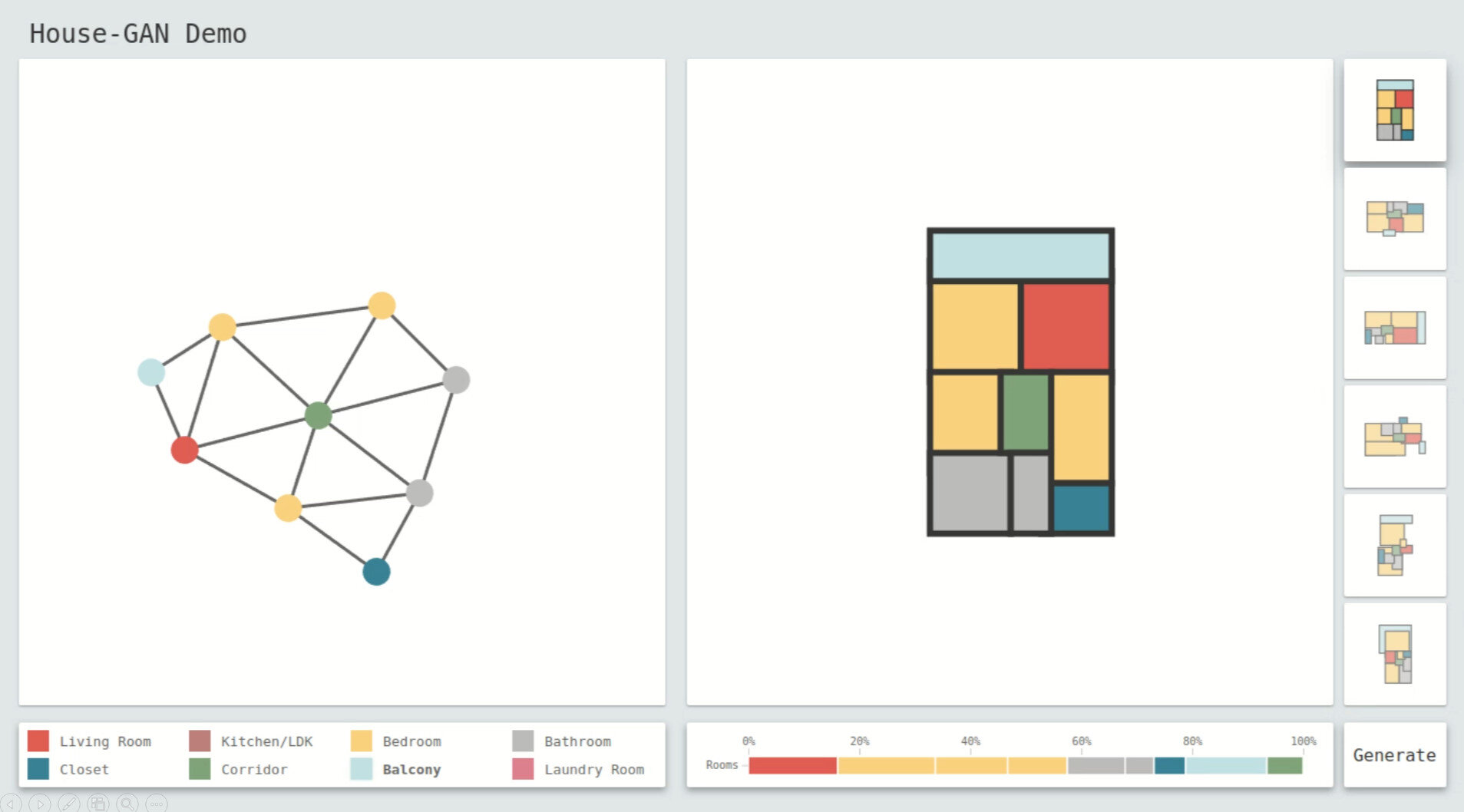
Chin-Yi Cheng
Chin-Yi Cheng is a Principal Research Scientist at Autodesk AI Lab. His research interest is to explore how human and machine learning algorithms can work together to solve design problems. Chin-Yi also believes that design is a perfect playground for machine learning research.
Keywords: AI and Machine Learning Based Design Tools
Talk Title: Co-design with AI
Is automating everything the only goal when applying AI? Can we instead augment human creativity by freeing creators from mundane tasks? In this talk, Chin-Yi will dive into the architectural design workflows and demonstrate examples of ML-based interactive design tools, such as House-GAN. He will also discuss how new ideas and interesting research topics in machine learning can emerge from solving design-related problems.
Open to CMU:
Zoom link or add the Zoom link to your Google Calender
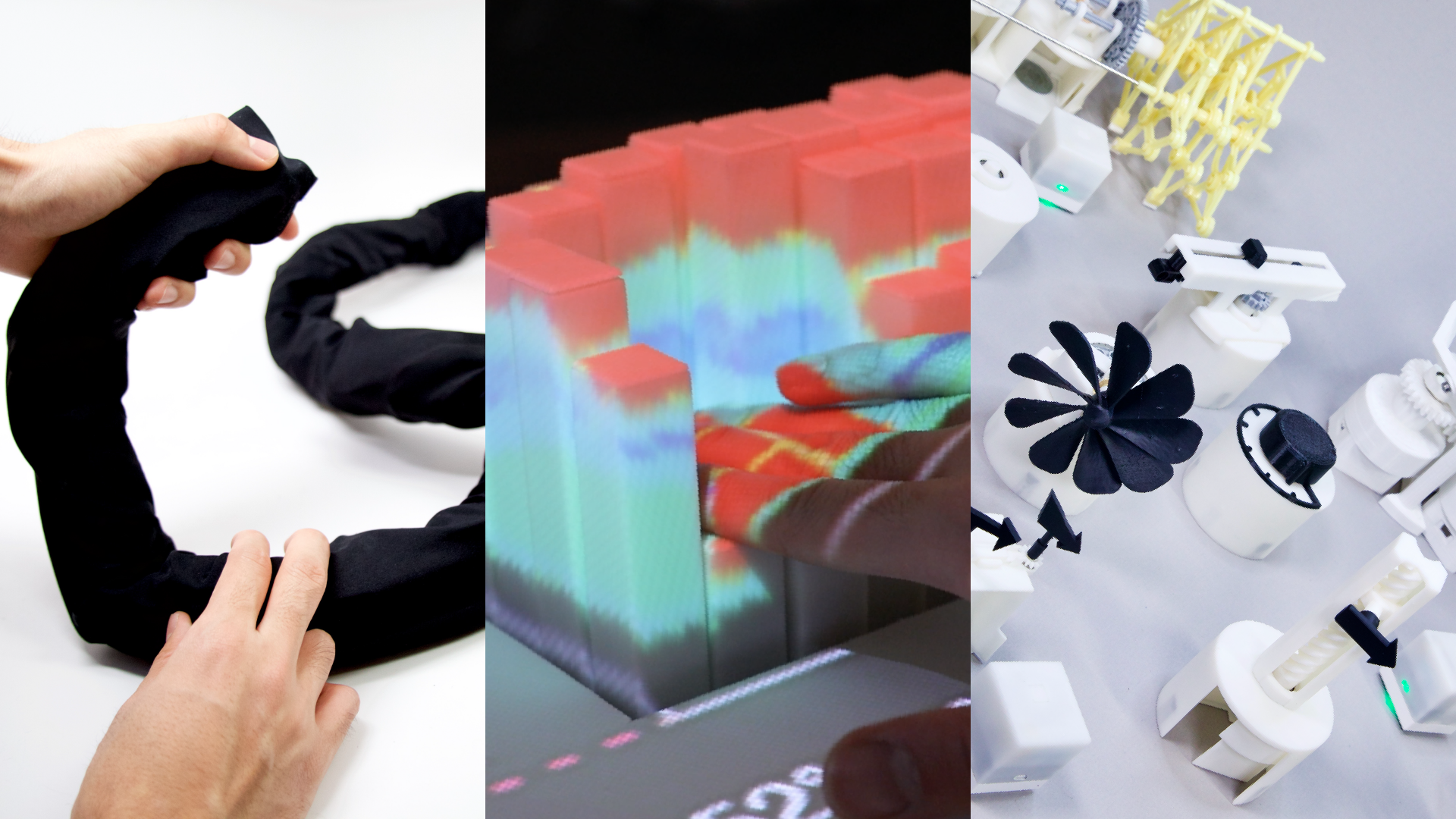
Ken Nakagaki
Ken Nakagaki is an interaction designer and HCI (Human Computer Interaction) researcher from Japan. Currently, he is a Ph.D. Candidate of Tangible Media Group, MIT Media Lab. His research focuses on novel user interfaces that combine digital information or computational aids into daily physical tools and materials seamlessly. He is passionate about inventing novel tangible experiences with such interfaces through curiosity-driven tangible prototyping processes.
Prior to joining the Media Lab, he received Master’s and Bachelor’s degrees from Keio University SFC with a major in interaction design. In 2017, he was a Research Associate at Disney Research Pittsburgh. His works have been presented in top HCI conferences (ACM CHI, UIST, TEI), and demonstrated in international exhibitions and museums. He has received awards such as MIT Technology Review’s Innovators Under 35 Japan, the Japan Media Arts Festival, James Dyson Award, etc.
Keywords: Actuated Tangibles; Shape Changes; User Interfaces.
Talk Title: Actuated Tangibles Actuate People: Designing Tangible Experiences by Weaving Actuation into the Physical World
In my talk, I present my research in HCI focuses on Actuated Tangible User Interfaces (A-TUIs), an emerging type of user interfaces that physically transform and/or move. Such an interface enriches our interaction with digital information as well as physical environments through motion and transformation. Based on implementation techniques of robotics and interactive technologies, my research has investigated several general approaches to advance A-TUIs to weave into our everyday physical environments. These A-TUI approaches include (a) employing form factors of everyday material and tools, (b) designing perception of dynamic material property, and (c) developing passive and active A-TUI architecture. My talk will share these research approaches demonstrated by multiple research projects, and point towards future research and design opportunities for creating ‘actuated’ tangible experiences.
Open to CMU:
Zoom link or add the Zoom link to your Google Calender
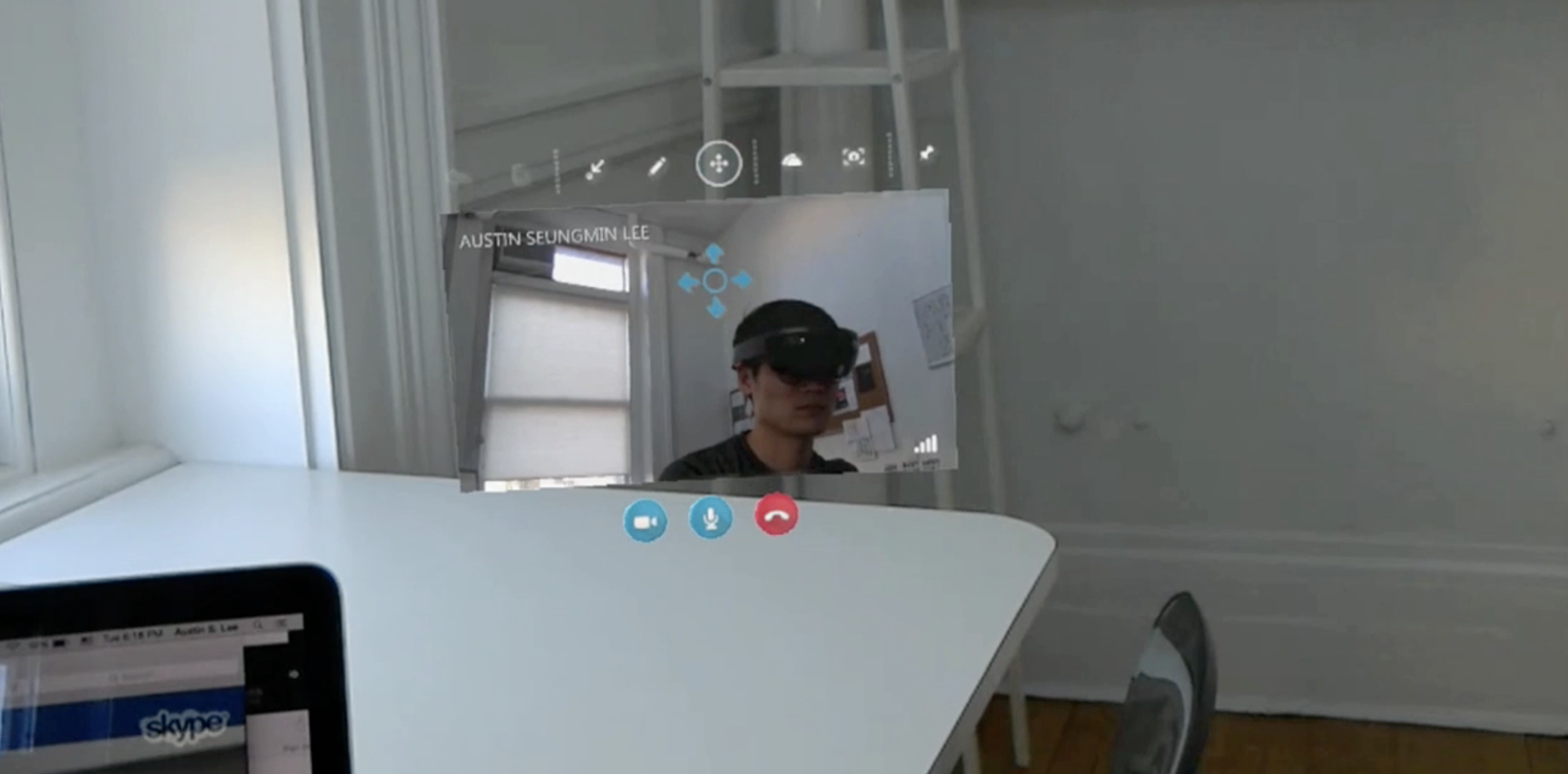
Austin Lee
Austin Lee is a designer and educator based in Seattle, designing new hardware experiences at Microsoft's Mixed Reality Design and UX Research team (HoloLens team), focusing on multimodal spatial interactions and immersive communications. He has advised and created designs for Fortune 500 companies and startups. From 2015 to 2017, he taught design courses at Carnegie Mellon University's School of Design as a tenure track assistant professor.
Keywords: Mixed Reality; Spatial Computing.
Talk Title: Future of Spatial Computing and Designing for the Gen C
Virtual events are increasingly becoming more critical than ever as the pandemic has robustly changed how we work, learn, meet, and communicate with one another on a global scale. Through the lens of spatial computing and Mixed Reality design, we investigate how people connect through technology in the context of physical, digital, and hybrid environments. With the younger generation in mind, we discuss designing for the future in a time of Covid 19 and beyond.
Open to Public:
Zoom link or add the Zoom link to your Google Calender

